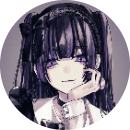Học tại trường
Chưa có thông tin
Đến từ
Hưng Yên , Chưa có thông tin
Số lượng câu hỏi
17
Số lượng câu trả lời
105
Điểm GP
26
Điểm SP
45
Người theo dõi (8)
Đang theo dõi (3)

Câu trả lời:
Hay
Thanks

Câu trả lời:
Question 1: New sources of energy (A) have been looking (B) for as the number (C) of fossil fuels continues (D) to decrease.
B => been looked
Question 2: Vietnam exports (A) a lot of rice is grown (B) mainly in (C) the south of (D) the country.
B => grown
Question 3. He passed (A) the exam with (B) high scores, that (C) made his parents happy (D).
C => which
Question 4. To attract (A) someone’s attention, we can use (B) either verbal and non-verbal (C) forms of communication (D).
C => or non-verbal
Question 5. The doctor's records must be kept (A) thorough and (B) neatly (C) so as to insure (D) good book – keeping.
C => neat
Question 6. Rabbit and hares (A) look much (B) like and are often (C) mistaken for (D) each other.
like => alike
Question 7. In the United States (A) among 60 per cent (B) of the space on the pages of newspapers (C) is reserved for (D) advertising.
A => about
Question 8: My mother (A) reminded me (B) to remember (C) to water her (D) house plants.
B => bỏ
Question 9: Bill (A) is often late (B) for class, (C) which makes his teachers (D) angrily. angrily => angry |
Question 10: Mumps (A) are a very (B) common disease (C) which (D) usually affects children. A => is |

Câu trả lời:
1 D
2 B
3 C
4 B
5 C
6 D

Câu trả lời:
sửa ở dưới

Câu trả lời:
1B
2C
3C
4C
5D

Câu trả lời:
Question 1: When you cross the street, be careful and be on the alert for the bus.
A. Look for |
|
| B. watch out for |
|
| C. search for |
|
|
| D. watch for |
Question 2: He was asked to account for his presence at the scene of crime | ||||||||||
A. complain |
|
| B. exchange |
|
| C. explain |
|
|
| D. arrange |
Question 3: Computers are recent accomplishments in our time (câu này lỗi đáp án ạ) | ||||||||||
A. Look for |
|
| B. watch out for |
|
| C. search for |
|
|
| D. watch for |
Question 4: He seems to make the same mistake over and over again. | ||||||||||
A. for good | B. by the way C. repeatedly D. in vain |
|
|
|
|
| ||||
Question 5: In many countries, people who are jobless get unemployment benefit | ||||||||||
A. dole |
|
| B. pension |
|
| C. fee |
|
|
| D. scholarship |










